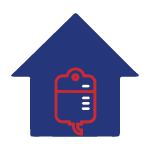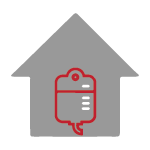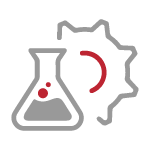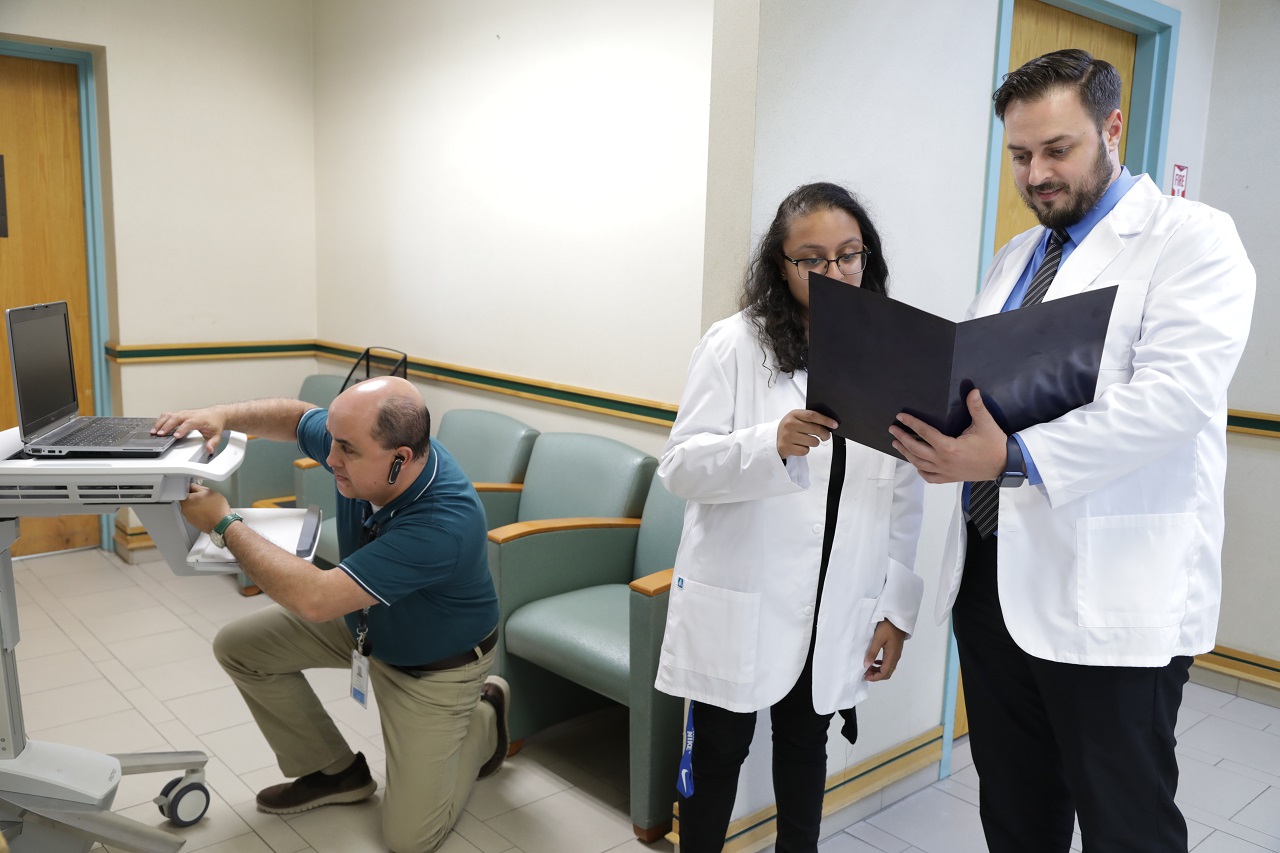Select a treatment option below to find more information:
In-center hemodialysis is a common treatment where patients visit a dialysis center to receive care from healthcare professionals. This process involves a machine that filters waste and excess fluid from the blood, typically requiring three weekly sessions lasting about 3-4 hours each.
Peritoneal dialysis (PD) is a home-based treatment that uses the lining of the abdomen (peritoneum) to filter waste. Patients infuse a sterile solution into the abdomen through a catheter, which absorbs toxins and fluids and is then drained. PD offers flexibility and can be done daily at home or work.
Home hemodialysis allows patients to undergo treatment from the comfort of their home. With proper training and support, patients can manage their dialysis schedule more flexibly, often with the option for more frequent, shorter sessions, which may lead to improved outcomes and energy levels.
A kidney transplant offers the possibility of life without dialysis. It involves replacing a failed kidney with a healthy one from a donor, either living or deceased. Transplants require a careful matching and approval process, and patients must take immunosuppressive medications to prevent rejection.
Each option has unique benefits. Talk with your healthcare provider to determine the best treatment plan for you.

At ADMS, we provide a comprehensive suite of dialysis management services designed to support clinics, patients, and staff in every aspect of dialysis care. Our team of experts delivers solutions that prioritize patient outcomes, regulatory compliance, and operational efficiency.


Home Dialysis Services
- Empowering patients to manage their dialysis treatment from the comfort of home, we provide full support for at-home dialysis, including training, setup, and continuous monitoring, ensuring safety and ease for patients and caregivers.


Clinical support
- Our clinical team offers expert guidance and hands-on assistance to optimize patient care, streamline clinical workflows, and enhance patient satisfaction.


Compliance & Auditory
- Navigating complex regulations, our compliance specialists conduct regular audits and maintain strict adherence to regulatory standards, ensuring your facility meets all local and federal requirements.


Quality control
- Committed to excellence, we implement rigorous quality control measures to monitor treatment effectiveness, minimize risks, and maintain the highest standards of patient care.


Biomedical services
- Our biomedical team provides preventive maintenance and repairs, ensuring that all dialysis equipment is safe, reliable, and fully operational.


EHR/EMR training
- We offer comprehensive EMR and EHR training to help your staff efficiently manage electronic records, streamline workflows, and optimize patient data management.


Accounting
- Our accounting services cover financial planning, budgeting, and reporting to help you maintain a clear financial picture and optimize profitability.


Human Resources
- From recruitment to payroll and benefits management, our HR services help you build and retain a skilled and motivated team.


Staff education
- We provide ongoing education and training for staff, ensuring they remain knowledgeable on best practices, new technologies, and patient care techniques.


Full IT support
- Our IT team offers complete support for all your technological needs, from hardware maintenance to software troubleshooting, ensuring seamless daily operations.
Each service we offer is backed by our commitment to quality, transparency, and patient-centered care, helping your facility achieve excellence in dialysis management.

Sign up to receive our monthly newsletter directly in your inbox. Whether you're a patient, a healthcare provider, or simply interested in dialysis care, our newsletter is designed to keep you connected and informed.


